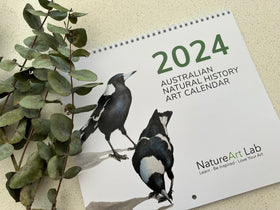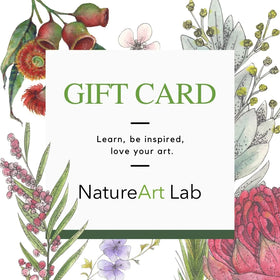
Arts education and nature: empowering creativity, problem-solving and promoting good health.
Why are the arts so important in education? With the current rate of environmental degradation and biodiversity decline, how can we better support environmental literacy, stewardship and sustainability in our communities? Why is nature so important for health, happiness and creativity? There is a strong and growing literature base which demonstrates clear answers to these questions.
The arts play a critical role in our society as change agents with the power to convey complex problems in artistic form, address contemporary social and political issues and empower creative problem-solvers. Studies show that diminished arts programs in education actually curtails individuality and creative thinking. Students' hands-on learning through the arts and play is critical for them to find their place in this world and the environment, and in cultivating their self-knowledge. Giving students the ability to engage in arts education from an early age, is known to improve motivation, teamwork, self-confidence and concentration. It also helps to provide students with new ways of engaging with STEM subjects (Science, Technology, Engineering, Mathematics). Involvement in the arts correlates with improved mathematics, reading, cognitive ability, critical thinking and verbal skills. We need to promote STEAM in our education system to enable the creative and critical thinkers of the future.
Arts education can also help to promote innovative and visionary answers to environmental issues, and build a generation of environmentally literate community members with capability for environmental stewardship (for a synopsis of arts education research, see literature review by Jennifer Sams and Doreen Sams, 2017, 'Arts Education as a Vehicle for Social Change', Australian Journal of Environmental Education, vol. 33 (2), 61-80, 2017).
There is also an increasing body of scientific research demonstrating the epidemic dislocation of modern society from nature and the effect this has on human well-being. This has been attributed to a confluence of demographics and technology, with many societies being pivoted further away from nature than any generation before us. We are also "increasingly seeing chronic ailments made worse by time spent indoors, from myopia and vitamin D deficiency to obesity, depression, loneliness and anxiety, among others" (Williams, F. 2018. The Nature Fix).
Scientists are quantifying nature's effects on mood and well-being, as well as our ability to think, to remember things, to plan, to create and to focus. It affects our social skills. Enhancing well-being has been shown to add years onto people's lives. Nature can lower stress levels and boost mental health. Nature helps to restore attention capacity and ensure sharper cognition.
Combined, arts and nature are a powerful and important addition to all of our lives. STEAM education has been highlighted in the Gonski 2.0 report and the Australian Curriculum, and is now part of a global movement. We also need to cultivate the 22nd century skills of connection, care, community and culture - importantly - through a greater resonance with nature, the ultimate decider of our planet's future.
NatureArt Lab is a strong proponent for STEAM and integrated approaches to arts and science. Our special interest programs with nature-journaling content, children's school holiday programs and youth art-science programs are actively promoting enquiry-based learning for all participants.



Comments
Leave a comment